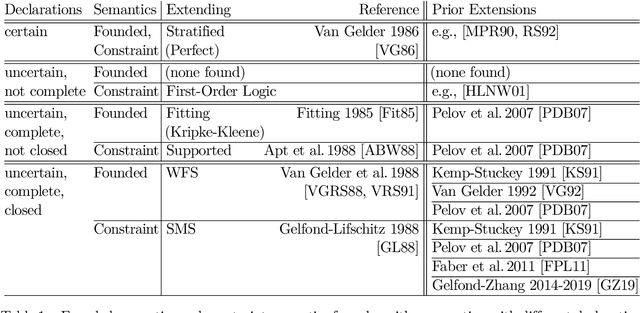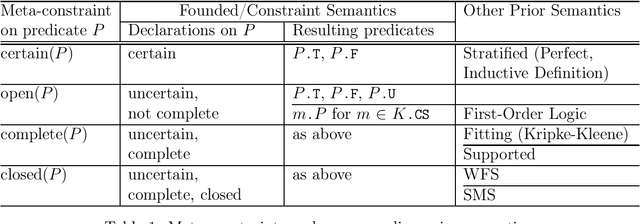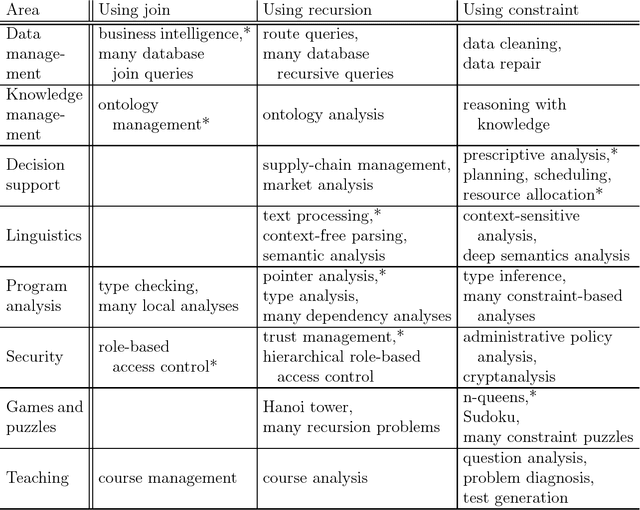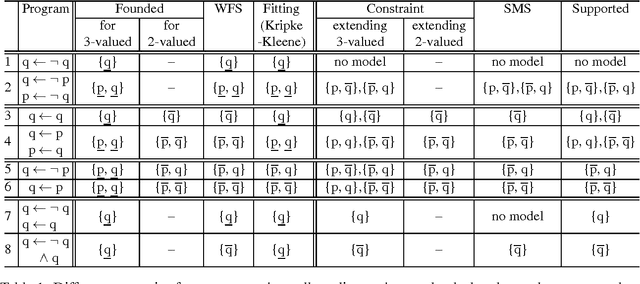Yanhong A. Liu
Logical Lease Litigation: Prolog and LLMs for Rental Law Compliance in New York
Feb 13, 2025



Abstract:Legal cases require careful logical reasoning following the laws, whereas interactions with non- technical users must be in natural language. As an application combining logical reasoning using Prolog and natural language processing using large language models (LLMs), this paper presents a novel approach and system, LogicLease, to automate the analysis of landlord-tenant legal cases in the state of New York. LogicLease determines compliance with relevant legal requirements by analyzing case descriptions and citing all relevant laws. It leverages LLMs for information extraction and Prolog for legal reasoning. By separating information extraction from legal reasoning, LogicLease achieves greater transparency and control over the legal logic applied to each case. We evaluate the accuracy, efficiency, and robustness of LogicLease through a series of tests, achieving 100% accuracy and an average processing time of 2.57 seconds. LogicLease presents advantages over state-of-the-art LLM- based legal analysis systems by providing clear, step-by-step reasoning, citing specific laws, and distinguishing itself by its ability to avoid hallucinations - a common issue in LLMs.
* In Proceedings ICLP 2024, arXiv:2502.08453
LP-LM: No Hallucinations in Question Answering with Logic Programming
Feb 13, 2025Abstract:Large language models (LLMs) are able to generate human-like responses to user queries. However, LLMs exhibit inherent limitations, especially because they hallucinate. This paper introduces LP-LM, a system that grounds answers to questions in known facts contained in a knowledge base (KB), facilitated through semantic parsing in Prolog, and always produces answers that are reliable. LP-LM generates a most probable constituency parse tree along with a corresponding Prolog term for an input question via Prolog definite clause grammar (DCG) parsing. The term is then executed against a KB of natural language sentences also represented as Prolog terms for question answering. By leveraging DCG and tabling, LP-LM runs in linear time in the size of input sentences for sufficiently many grammar rules. Performing experiments comparing LP-LM with current well-known LLMs in accuracy, we show that LLMs hallucinate on even simple questions, unlike LP-LM.
* In Proceedings ICLP 2024, arXiv:2502.08453
Proceedings of the 2nd Workshop on Logic and Practice of Programming
Nov 17, 2022Abstract:This proceedings contains abstracts and position papers for the work presented at the second Logic and Practice of Programming (LPOP) Workshop. The workshop was held online, virtually in place of Chicago, USA, on November 15, 2010, in conjunction with the ACM SIGPLAN Conference on Systems, Programming, Languages, and Applications: Software for Humanity (SPLASH) 2020. The purpose of this workshop is to be a bridge between different areas of computer science that use logic as a practical tool. We take advantage of the common language of formal logic to exchange ideas between these different areas.
LPOP: Challenges and Advances in Logic and Practice of Programming
Aug 15, 2020Abstract:This article describes the work presented at the first Logic and Practice of Programming (LPOP) Workshop, which was held in Oxford, UK, on July 18, 2018, in conjunction with the Federated Logic Conference (FLoC) 2018. Its focus is challenges and advances in logic and practice of programming. The workshop was organized around a challenge problem that specifies issues in role-based access control (RBAC), with many participants proposing combined imperative and declarative solutions expressed in the languages of their choice.
Recursive Rules with Aggregation: A Simple Unified Semantics
Jul 26, 2020

Abstract:Complex reasoning problems are most clearly and easily specified using logical rules, especially recursive rules with aggregation such as counts and sums for practical applications. Unfortunately, the meaning of such rules has been a significant challenge, leading to many different conflicting semantics. This paper describes a unified semantics for recursive rules with aggregation, extending the unified founded semantics and constraint semantics for recursive rules with negation. The key idea is to support simple expression of the different assumptions underlying different semantics, and orthogonally interpret aggregation operations straightforwardly using their simple usual meaning.
Knowledge of Uncertain Worlds: Programming with Logical Constraints
Oct 23, 2019
Abstract:Programming with logic for sophisticated applications must deal with recursion and negation, which have created significant challenges in logic, leading to many different, conflicting semantics of rules. This paper describes a unified language, DA logic, for design and analysis logic, based on the unifying founded semantics and constraint semantics, that support the power and ease of programming with different intended semantics. The key idea is to provide meta constraints, support the use of uncertain information in the form of either undefined values or possible combinations of values, and promote the use of knowledge units that can be instantiated by any new predicates, including predicates with additional arguments.
Logic Programming Applications: What Are the Abstractions and Implementations?
Feb 20, 2018

Abstract:This article presents an overview of applications of logic programming, classifying them based on the abstractions and implementations of logic languages that support the applications. The three key abstractions are join, recursion, and constraint. Their essential implementations are for-loops, fixed points, and backtracking, respectively. The corresponding kinds of applications are database queries, inductive analysis, and combinatorial search, respectively. We also discuss language extensions and programming paradigms, summarize example application problems by application areas, and touch on example systems that support variants of the abstractions with different implementations.
Founded Semantics and Constraint Semantics of Logic Rules
Apr 15, 2017
Abstract:This paper describes a simple new semantics for logic rules, founded semantics, and its straightforward extension to another simple new semantics, constraint semantics. The new semantics support unrestricted negation, as well as unrestricted existential and universal quantifications. They are uniquely expressive and intuitive by allowing assumptions about the predicates and rules to be specified explicitly. They are completely declarative and easy to understand and relate cleanly to prior semantics. In addition, founded semantics can be computed in linear time in the size of the ground program.
AppLP: A Dialogue on Applications of Logic Programming
Apr 07, 2017
Abstract:This document describes the contributions of the 2016 Applications of Logic Programming Workshop (AppLP), which was held on October 17 and associated with the International Conference on Logic Programming (ICLP) in Flushing, New York City.
 Add to Chrome
Add to Chrome Add to Firefox
Add to Firefox Add to Edge
Add to Edge